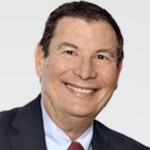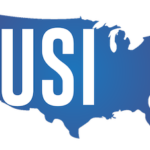
As we get ready to celebrate another Thanksgiving holiday in the United States, it’s time once again to reflect on the year so far and to look beyond the many challenges facing intellectual property (IP) owners to what there is to be thankful for. Whether it’s people—like Judge Paul Michel, Kathi Vidal, Senator Thom Tillis and Rep. Thomas Massie—or major developments—like the withdrawal of the latest Joint Policy Statement on SEPs and the introduction of legislation to reform patent eligibility law—the commenters below have found a lot of ways to give thanks. Add your thoughts in the comments section and:
Happy Thanksgiving from IPWatchdog!
 Alden Abbott
Alden Abbott
Former FTC General Counsel; Senior Research Fellow
Mercatus Center at George Mason University
I am thankful that the U.S. Justice Department (DOJ) withdrew its draft policy statement on licensing SEPs [standard essential patents]. That statement (which set forth guidance to micromanage licensing negotiations and commented negatively on the ability of SEPs to obtain injunctions) reflected a “weak SEPs” philosophy that would have engendered uncertainty and thereby discouraged investments in standardized technologies. It would have been better had the Biden Administration taken the additional step of reinstating the Trump Administration’s more SEP-friendly 2019 policy statement, but one should be grateful for small favors.
Hon. Susan G. Braden
Jurist-In-Residence
Center for Intellectual Property and Policy GIP2- Anthony Scalia Law School
I am thankful for the civil, substantive advocacy about the importance of intellectual property rights to our nation’s continued prosperity, which is absolutely required to sustain Democracy—including (but not limited to) former Chief Judge Paul Michel; former USPTO Directors Andrei Iancu and David Kappos; the current USPTO Director Kathi Vidal; Steve Caltrider (2022 Patent Public Advisory Committee Chair and 2023 American Bar Association IP Section Chair); Professor Adam Mossoff, Antonin Scalia Law School; Josh Kresh, Director of C-CIP2; Joe Allen and Jon Soderstrom of the Bayh-Dole Coalition, the United Inventors Association; and Gene and Renee Quinn, who provide an audience for their voices and sustain us all by their friendship. Bless be the ties that bind!

Efrat Kasznik
Efrat Kasznik
President
Foresight Valuation Group
In a year of declining stock prices and record high inflation, I am grateful to be working in the field of IP valuation and transactions. While not entirely shielded from the economic turmoil, IP assets can provide alternative deal structures and monetization options for companies looking for technology transfer and asset monetization. When M&A deals are down due to the higher cost of borrowing, IP and technology licensing become a very viable option for buyers to acquire new technologies without incurring the due diligence and high cost of corporate acquisitions. This is also an opportunity for startups, in a very tough equity funding market, to generate non-dilutive cash inflows through licensing their IP. With unprecedented layoffs in the tech industry in 2022, it is also encouraging to see that the field of IP services seems to be impacted to a lesser degree. Companies should be looking to this talent pool as potential additions to their IP and R&D operations.
 Stephen Kunin
Stephen Kunin
Partner
Maier & Maier PLLC
The IP Community should be thankful for those individuals, such as Paul Michel, Randall Rader, Kathleen O’Malley and other now retired federal judges, who remain active advocates for a strong IP system and are unafraid to challenge the decisions of the Supreme Court and Federal Circuit that they believe weaken our U.S. patent system and create uncertainty for those dependent on our system to adequately protect IP rights.
Daryl Lim
H. Laddie Montague Jr. Chair in Law
Associate Dean for Research and Innovation
Penn State Dickinson Law
I’m glad that inclusive innovation has become a watchword in the IP community. Any knowledge-based economy seeking to develop supply chain resilience, social cohesion, and geostrategic leadership must succeed in tapping the talents of its entire population, not just that of a small segment of inventors, creators, and entrepreneurs. I am encouraged and inspired to see local and national initiatives blossoming to engage youths, women, and other underrepresented groups.
In a climate where divides are less about substance than about political motives and identities and where a clash of cultures and anger have replaced truth and reason as the way to settle disputes, we risk forgetting that the American IP system is great, not from victories over each other but by a reconciliation of interests and a unity of purpose. Even as we celebrate this year’s academic scholarship, government programs, and private sector achievements in the inclusive innovation space, we must seize the moment, build on that momentum, and strive for actionable, measurable, and lasting progress.
Scott McKeown
Partner, Chair, PTAB Group
Ropes & Gray
I’m thankful that the Supreme Court has turned away all of the recent petitions seeking clarification of 35. U.S.C. § 101. That is not to say that the law of patentable subject doesn’t need immediate attention – it plainly does – but I am thankful that Court has also thrown up its hands (along with the rest of us). The mandate for a legislative fix could not be clearer, and Senator Tillis has answered the call. His draft 101 bill attempts to start the conversation heading into 2023. This is the start that is needed. Rather than attacking that bill as imperfect, let’s work on improving it.
Karthika Perumal
Partner
Womble Bond
In 2022, we are thankful for the appointment of Derrick Brent as the USPTO Deputy Director. His diverse professional experience brings valuable perspectives to the USPTO about innovation from all types of entities in the innovation ecosystem.
Daniel Shores
Partner
Rothwell, Figg, Ernst and Manbeck, P.C.
I am thankful for our global business leaders and innovators who have pushed forward and succeeded over the past several years despite adverse healthcare, economic, social, political, and other circumstances. Persevering through all of this while making the world better through providing innovative therapeutic, medical device, energy, and other technologies is not an easy task, but one that drives economic and societal growth. I am hopeful that our lawmakers understand this and support policies that cultivate an environment that allows such technology-based businesses to thrive. As IP is central to the innovation ecosystem, I am especially grateful to have the opportunity to help companies leverage their IP to achieve their goals and position themselves for success in their respective spaces. I wish all of the IPW readership and their families and friends a most Healthy and Happy Thanksgiving!

Mark Simpson
Partner
Saul Ewing
I’m thankful for the appointment and confirmation of Kathi Vidal as the Under Secretary of Commerce for Intellectual Property and Director of the United States Patent and Trademark Office. While there are many, I’ll highlight two reasons that particularly stand out to me. First, she has a wide swath of experience that includes working as an engineer, litigating IP cases in private practice, and managing the Silicon Valley office of a large and prestigious law firm with offices around the world. These experiences give her a viewpoint that enables her to appreciate the different perspectives of all involved in the IP world and bring these experiences to the table in solving problems and improving operations of the USPTO and the US patent system. We truly have a colleague running the show.
Second, and of equal importance, is that in Kathi Vidal we have at the helm a true advocate of diversity who has shown through her actions that she knows how to make change, change that is vitally needed in our profession. I consider myself so very fortunate to be a Partner in a Firm, Saul Ewing, that has looked inward and taken (and continues to take) the steps necessary to listen to, educate, and challenge its people and implement forward-thinking and progressive policies so that all of us and our clients can benefit from the different backgrounds, lifestyles and perspectives that a diverse group of people bring to the table. Throughout her career, Kathi Vidal has seen first-hand the barriers that a lack of diversity in the IP profession raises and has been a strong and active advocate working to remove these barriers. She is already taking steps in her new role by forming committees to focus on DEI, modifying hiring practices, and communicating with diverse groups to encourage them to come work at the USPTO. We can all be thankful that she has taken this role and is running with it.
Jonathan Stroud
General Counsel
Unified Patents
I am thankful for how close-knit the IP community is, how civilized and intelligent everyone generally is, and how enjoyable it can be when we get together, regardless of opinion or goals. If recent in-person events are any guide, we all missed each other over the pandemic; it’s great to have that community back and to be able to continue to practice in this special, obscure, amazing field together.
Congress is turning in favor of the inventor. Representative Thomas Massie introduced HR 5874, Restoring America’s Leadership in Innovation Act (RALIA). This bill restores and protects the right of inventors to own and enforce their private property rights. Because of this bill, USI was able to connect and contact members of the House and Senate to advocate on behalf of inventors everywhere. To Representative Thomas Massie, and all those that cosponsored RALIA: Thank you! This year we can say the movement is changing for the better.
US Inventor members have given the utmost support and dedication to restoring the US patent system. They have called, attended town halls, and spread awareness in other ways. Without them, we would not have made the impact and progress that we made.
2022 was a year of growth and progress for many within the IP Community. Anti-Patent congressional members are retiring or are finally coming to light on the issues many inventors and small businesses face. For a year of progress, thank you.
Wendy Verlander
Managing Shareholder
Verlander LLP
This year, a lot seemed to go against inventors, from the Supreme Court not taking up American Axle, to major damages awards being overturned or threatened for no good reason, to the USPTO Director severely diminishing Fintiv denials, to the aggressive use of mandamus orders transferring cases for convenience, to disruption of yet another fair venue in WDTX, to requiring disclosure of funding arrangements. But, through it all, inventors have continued to persevere, demonstrating a tenacity that reminds us why we do this. I hope the draft bill attempting to fix the intractable patent eligibility problem is a sign that things may be changing. But mostly, I am thankful for the spirit and determination of these inventors and that, even through all this adversity, they continue the important work that benefits us all.
Wen Xie
Partner
Global IP Counselors
I am grateful for the bipartisan legislative effort to reform §101 led by Senator Tillis and Senator Coons under the Patent Eligibility Restoration Act. I believe that the current draft of the proposed bill is well-written and thoughtful. The criticisms regarding any lack of clarity is understandable, such as the meaning of “non-technological”, but I believe the bill purposely leaves room for agency interpretation by the USPTO based on existing case law from the Federal Circuit and the Patent Trial and Appeal Board with respect to the meaning of “technical” and “technological.” The bill rightfully sets forth certain explicit exclusions from patentability, thereby enabling all categories of inventions not mentioned from those list of exclusions to be deemed patentable, as it should be. While I believe the proposed bill should also define “machine or manufacture” to explicitly include computers and computer structure to overcome the extensive breadth of the “abstract idea” interpretation provided under the Alice doctrine, I believe that the intent of the Senators is clearly to cover computer-implemented processes including artificial intelligence.


![[IPWatchdog Logo]](https://ipwatchdog.com/wp-content/themes/IPWatchdog%20-%202023/assets/images/temp/logo-small@2x.png)


![[Advertisement]](https://ipwatchdog.com/wp-content/uploads/2024/04/UnitedLex-May-2-2024-sidebar-700x500-1.jpg)
![[Advertisement]](https://ipwatchdog.com/wp-content/uploads/2024/04/Artificial-Intelligence-2024-REPLAY-sidebar-700x500-corrected.jpg)
![[Advertisement]](https://ipwatchdog.com/wp-content/uploads/2024/04/Patent-Litigation-Masters-2024-sidebar-700x500-1.jpg)

![[Advertisement]](https://ipwatchdog.com/wp-content/uploads/2021/12/WEBINAR-336-x-280-px.png)
![[Advertisement]](https://ipwatchdog.com/wp-content/uploads/2021/12/2021-Patent-Practice-on-Demand-recorded-Feb-2021-336-x-280.jpg)
![[Advertisement]](https://ipwatchdog.com/wp-content/uploads/2021/12/Ad-4-The-Invent-Patent-System™.png)






Join the Discussion
2 comments so far.
concerned
November 24, 2022 11:37 am“exists solely in the human mind”
Is that statement what a judge says it to be or what factually is the truth?
Experts cannot 100% mentally do my claims in their mind, regardless what a judge says without offering evidence. If the experts could 100% mentally solve the problem, why has the problem not been solved since 1956? Calling the experts morons is not responsive.
Adding evidence as a condition to dispute what a judge says would make me happier.
Pro Say
November 24, 2022 10:11 amI’m most thankful for Congress restoring patent eligibility to all areas of innovation . . . and SCOTUS overturning their unconstitutional Mayo and Alice decisions . . . and the CAFC correctly cabining Mayo and Alice as SCOTUS intended . . . and the new Director discontinuing doing the bidding of Big Tech . . . and the PTAB no longer overturning the patent allowances of their Examiner colleagues.
America is back!
2023 is looking marvelous — simply marvelous!